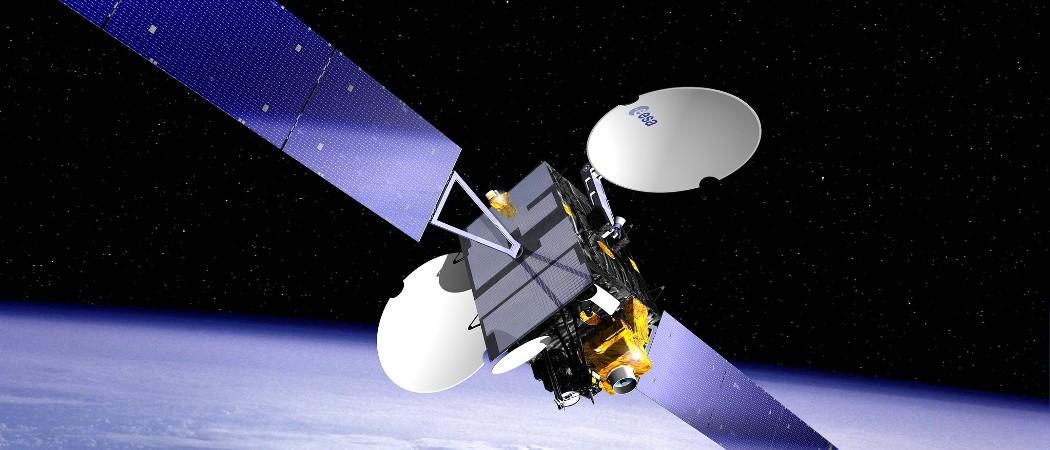There is political agreement on an EU satellite network to provide Europe and Africa with secure communications. But industry says it needs more detail to implement the plan

The EU is launching a €2.4 billion satellite network called IRIS². Photo: Jim pop / Flickr
The EU is to go ahead with launching a €2.4 billion satellite network that is designed to provide secure and encrypted communications for government and military users across the whole of Europe, and to plug holes in internet access in Africa, but private sector companies that will be largely responsible for implementing the scheme say it lacks detail.
"Though it applauds the initiative in unison, industry struggles to project itself into a programme that lacks a definition, as the current programme does" said Pierre Lionnet, research director of the industry association Eurospace.
The IRIS² constellation of satellites will be rolled out mainly by cross-industry consortia of companies active space, digital, and deep tech. According to a Commission official, calls are expected at the beginning of March 2023, while the first phase should start in 2024. However, no information about the consortia or of the calls is available at present.
According to industry, these are not the only details that are lacking and the definition of the programme overall is “insufficient.”
The objectives of the service and the fact that it will be delivered by a constellation of satellites are known, but more technical aspects are not. As one case in point, Lionnet said, “We still don’t know how many satellites should be launched.”
Others agree the industry needs more information. Sabine von der Recke, board member of the German aerospace and space company OHB System, said clarification is needed on “the funding, the allocation of responsibilities, and governance” of the programme.
Massimiliano Salini, a centre-right MEP from the Parliament’s industry, research and energy committee, ITRE, and shadow rapporteur of the European Parliament's report on the EU secure connectivity programme, said the exact relationship between private and public participants in the project needs to made clear, as otherwise there would be “a risk of conflict and interference” among them.
A myriad of private and public organisations and users are involved in the programme, including the EU, member states, industry, and the European Space Agency, among others.
Further complicating things, funding is coming from different sources. The EU budget for the programme is €2.4 billion, made up of money from the Space programme, Connecting Europe, the European Defence Fund, Horizon Europe and other programmes. A further €750 million will come from the European Space Agency, while it is hoped private investment might bring the whole budget to up to €6 billion.
Political agreement on IRIS², which was conceived by Thierry Breton, commissioner for the internal market, was reached after some three years of discussion. It will be the third European satellite constellation after the Galileo and Copernicus navigation, positioning and earth observation systems, and is expected to work in synergy with them.
Strategic autonomy
Despite the ongoing uncertainties, the industry is happy that the project has clearance.
It doesn't happen every day that a programme like IRIS² is launched, involving a fresh budget and new business opportunities, said Lionnet.
While waiting for a clearer technical definition, the industry is working on projects launched by the Commission to scope the programme and is providing inputs, he said.
IRIS² can be seen as response to shifting geopolitical sands and Europe’s view it needs greater strategic autonomy in space.
The geopolitical impact of satellite communications was underlined when at the beginning of the war in Ukraine, Elon Musk provided the country with a secure service, instead of Europe, which does not have the capability.
As it seeks to reshape its geopolitical role, the EU wants to build closer ties with Africa and hopes to use the new satellite programme to bring connectivity to the continent and counter the influence China is exerting through its belt and road initiative.
IRIS² does not have support across the board. Left-wing MEP and shadow rapporteur of the report on the proposal, Marc Botenga, who opposes the use of secure communications for European armed forces abroad, said it will, “facilitate European military interventions in Africa. Considering how contested EU military presence is, especially in Africa, this is not the way to go.”





 A unique international forum for public research organisations and companies to connect their external engagement with strategic interests around their R&D system.
A unique international forum for public research organisations and companies to connect their external engagement with strategic interests around their R&D system.